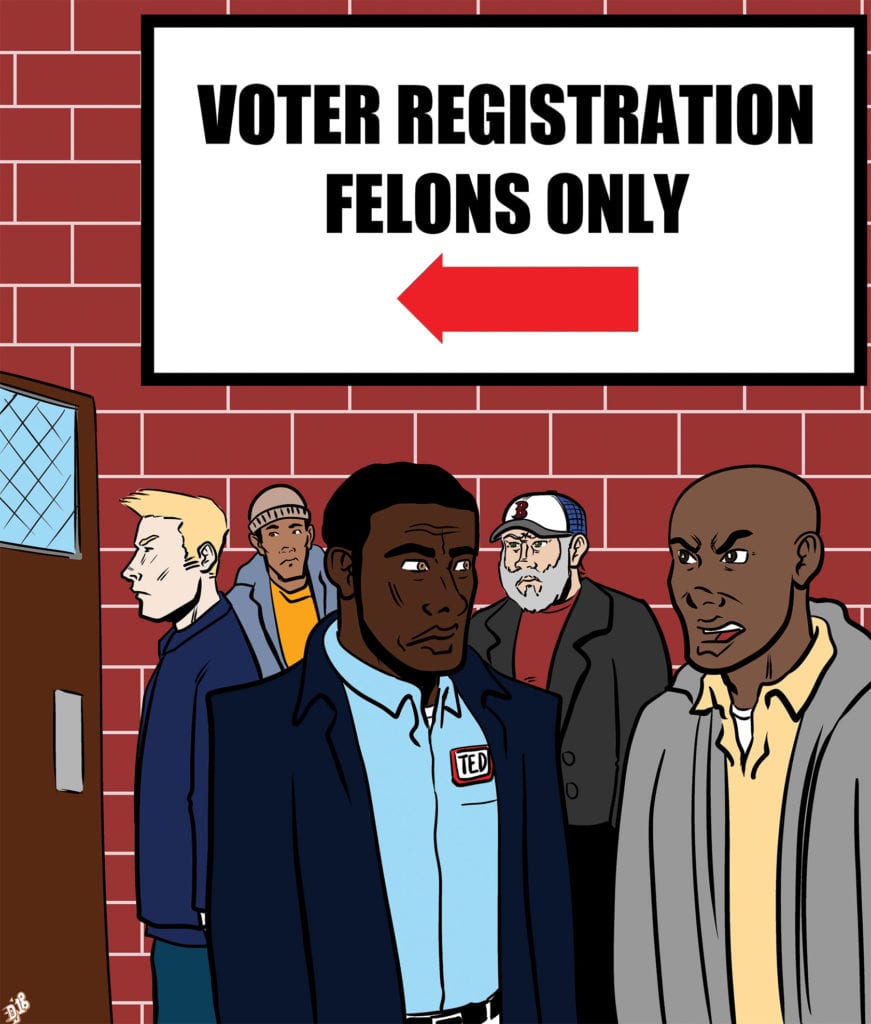
Numerous programs across the country attempt to return felons released from prison to useful lives. An important element of these efforts is for the released prisoners to become active in community affairs. However, restrictions on the voting rights of felons have impeded progress.
There has been a belief in the U.S. that felonious conduct is a breach of the social contract, and such perpetrators should be denied their right to participate in the electoral process. The U.S. Supreme Court has allowed great leeway in the right of states to disenfranchise felons. Only Maine and Vermont have no such restrictions. The District of Columbia and 14 other states including Massachusetts, New Hampshire and Rhode Island end restrictions upon release from prison.
Four other states including Connecticut, New York, California and Colorado enfranchise felons only after they have been released from prison and have completed parole. In another 20 states, released felons must also complete both parole and probation. However, completing probation is not enough in seven other states if the nature of the crime does not fall within the excludable category.
In the recent election, Florida’s citizens voted to restore voting rights to felons. With 1.4 million new voters, this will undoubtedly be the largest voter registration in history. When Terry McAuliffe was governor of Virginia, he claimed to have restored voting rights to 156,000 felons who had been denied suffrage by the state constitution. McAuliffe’s efforts in 2016 focused more attention nationally on felons’ loss of voting rights.
Now only Kentucky and Iowa have lifetime bans. With a reported one in 10 of Kentucky’s adults and one in four African Americans denied the right to vote, the state’s disenfranchised population is substantial. It is expected that Senator Mitch McConnell, the Senate Republican Majority Leader, will oppose any change that could greatly increase the size of the Democratic vote.
Disenfranchisement of felons has served as a strategy to reduce the size of the African American vote. Liberals should continue to campaign to end this odious practice in order to maximize the participation of blacks and Latinos in political efforts to support or suppress public policies.






